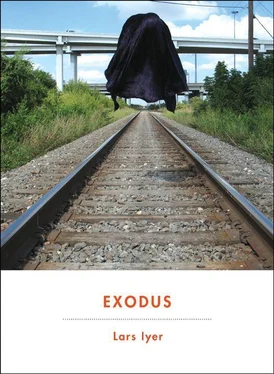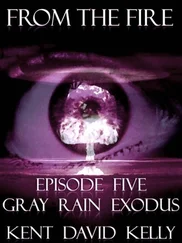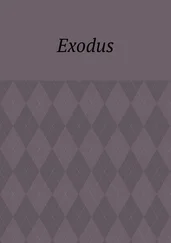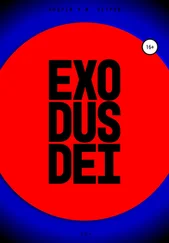Ten. Religious stupidity. I have no sense of God, W. says. No sense of monotheism! Oh, I have religious enthusiasms, W. grants that. Religious Schwärmerei . Sometimes, W. has felt moved to attribute a religious dimension to my despair over my life. To my warehouse years! To my years of unemployment and underemployment! But I’ve always fallen short of the idea of God, W. says. The idea of messianism . My Hinduism limits me, W. says. It’s quite obvious.
Eleven. Painting-and-decorating stupidity. Why did I paint my living room pink? W. wonders. What was going through my mind? Oh, he knows my answer: It was to bring out the red tones of the woodwork — of the built-in cupboards, with their louvre doors, I told him. But pink! W. says. Salmon pink! He shakes his head. Of course, the pink is turning brown now, in big patches, W. says. It’s turning green, too, and grey. Parts of the wall are spongy to touch. Parts of it seem to be becoming hairy . My posters of Louis Wain’s cats do nothing to cover it up.
Twelve. Romantic stupidity. W. imagines my courtship display, spreading the peacock’s tail of my idiocies. He imagines my great mating cry, like a wounded bull, W. says. But there will be no mating cry, and no courtship, he knows that. The word ‘love’ is completely meaningless to me.
Thirteen. Culinary stupidity. The discount sandwich is the opposite of food! W. says. The desecration of food! A man cannot live on stale gingerbread men and Kwik-Save beer alone, W. says. Though I’ve tried to.
Fourteen. Stupidity stupidity. The stupid are invariably stupid about being stupid , W. says. They have no idea of their own stupidity! Others laugh at the idiot and he laughs along. Everyone’s laughing! he thinks to himself. What fun! The stupid person doesn’t really suffer his stupidity, W. says. He leaves others to do that for him.
Passing through Exeter. Not too far to Plymouth.
How long is it since I wrote to our friend in Taiwan (W.’s friend in Taiwan)? W. asks me. W. hasn’t written to him in ages — years, he says. If you don’t contact a friend in five years, then he’s no longer a friend, that’s W.’s principle. And to lose our friend in Taiwan (W.’s friend in Taiwan) would be a terrible thing.
Ah, how can he forget the sight of him, when we met him at the station? His weightlifter’s vest … his Rupert the Bear scarf … Our hearts lifted! Our speaker had arrived, and all the way from Taiwan!
And what did we do with him? Where did we take him? W. shakes his head. To the worst Chinese restaurant in Newcastle . It was the only place open, I’d said. It’s actually pretty good, I’d said. Our friend (W.’s friend) had travelled halfway round the world, crossed whole continents, and we took him to the worst Chinese restaurant in Newcastle .
It was my fault, W. says. My Oriental food enthusiasm. My dim sum enthusiasm. Surely a better restaurant was open in Newcastle in the mid-afternoon! Surely we could have found somewhere else to eat!
Our friend (W.’s friend) had travelled all the way from Taipei, Taiwan, a centre of great Chinese-style food, to Newcastle, which is in no way renowned for Chinese-style food, W. says. Our friend (W.’s friend) had come the greatest distance possible, just to give a talk at my university, and we took him to a restaurant that would undoubtedly poison him and send him home in a body bag!
W. warned me, he remembers. What did he whisper to me on the way to Chinatown? We mustn’t poison our friend from Taiwan (his friend from Taiwan)! But how could he have known? W. says. How could he have known the hole into which I was leading him? The Oriental Buffet , W. says. All you can eat for £5, he says, shaking his head. The worst Chinese restaurant in Newcastle .
Our friend (W.’s friend) looked ill as we sipped our jasmine tea. I looked ill. W. felt ill, and that was before we began to eat. We hadn’t even seen the menu! Hospitality is a great art, W. says. It’s the art of arts. And here we were, as hosts, desecrating hospitality, spitting at it.
Still, he put a brave face on it, our friend from Taiwan (his friend from Taiwan), W. says. He took the reins of the conversation, as he always does. He was grace itself, as he always is. He tried to cover up the horror he must have felt at the dim sum, as it came glistening to our table. He didn’t retch as he nibbled on chicken feet. The potstickers didn’t seem to horrify him. He endured the steam buns and the spare ribs in hoisin sauce. And didn’t he even finish off his mango pudding?
He survived the afternoon. We survived it! And when we met up later that evening, we were determined to take our friend from Taiwan (W.’s friend from Taiwan) for a night out in Newcastle .
There was a kind of distractedness to him, our friend from Taiwan (W.’s friend from Taiwan), W. says. A vagueness , as though he wasn’t quite in tune with the world, wasn’t quite in focus. His outline seemed blurred, his replies hesitant, W. says — didn’t we notice that? When we asked him our questions, and we had many questions, there were long silences, great pauses and interregnums. And he replied, most often: I don’t know . Because he didn’t know, and he knew that he didn’t know. He rested in non-knowing.
Ah, how far away we must have seemed to him, our friend from Taiwan (W.’s friend from Taiwan), with our inanities! W. says. With our chatter! But he confided in us, W. says. He spoke of the loneliness of thought . He said that he’d been out too far, out too long …
He could only guess at the inner states of our friend from Taiwan (W.’s friend from Taiwan), W. says. He’d been out among the farthest stars, W. was sure of that. Out to the edge of the known universe, among the quasars …
Our friend from Taiwan (W.’s friend from Taiwan) had roamed anti-stars and anti-galaxies, W. says. He’d wandered out among the anti-electrons and the anti-baryons. He’d met the anti-Lars (a towering genius), and the anti-W. (very much in the shadow of his friend). He’d wandered to the end of time, and his thought was at one with the end of things: that was clear from his pauses and silences, from the gaps between his words. Between his sentences!
And when we took him out to the nightclubs of Newcastle, our friend from Taiwan (W.’s friend from Taiwan) seemed touched that we would think to look after him, W. says. He seemed genuinely moved when we showed him our primal scene dance.
We drank to his health. He drank to ours. We drank to his thought! He smiled at us. And when we took him to the airport the next morning, he embraced us both, looking each of us in the eye. — ‘ Pengyou ’, he said. ‘Friend’.
As friends of thought : that’s how we’ll be judged, W. says. As friends of those made solitary by thought.
We’ve sought to assist thought and its thinkers. Sought to lighten the solitude of thinking. We’ve written consolatory emails (W. more often than me). We’ve praised and encouraged (again, W. more than me). We’ve even discovered thinkers, picking them out from the crowd (W., not me).
We’re the encouragers of thought! Thought’s enthusiasts! What thinker, in our midst, have we failed to cheer on?
Weren’t we there, at our friend from Taiwan (W.’s friend from Taiwan)’s presentation, in the front row with our notebooks, furiously writing? He spoke, and we wrote. And after, knowing the audience’s reaction could not fail to disappoint him, could not fail to leave our friend from Taiwan (W.’s friend from Taiwan) feeling yet more isolated, yet more alone, we all but bore him upon our shoulders, cheering. We all but deafened him with our cries.
Читать дальше












